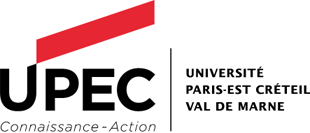- Télécharger en PDF
-
Partager cette page
- Télécharger en PDF
Vous êtes ici :
- Accueil FR ›
- Formation ›
- Pôle formation continue ›
- FC médicale ›
- Certificats, DU et DIU
- Formation continue,
Artificial Intelligence in Pathology
Publié le 25 janvier 2022 – Mis à jour le 6 juillet 2022
Key features of the course
This course is part of the current boom in the field of artificial intelligence applications in histology. This theme is very new and the target audience includes both pathologists who wish to better understand the principles of these technologies that will change medical practice, and also data scientists/bioinformaticians who wish to know the principles of human tissue analysis and become familiar with the methods of computational analysis of histological images.
Objectives
For healthcare or scientific professionals :
- Be able to actively participate in the design of studies using artificial intelligence methods for the analysis of digital histological slides
- Be able to analyze scientific papers involving artificial intelligence methods applied to microscopic image analysis
- Evaluate the performance of artificial intelligence models and their limitations
- Be able to interpret and analyze scientific articles in the field of artificial intelligence applied to pathology
- Be able to analyze scientific papers involving artificial intelligence methods applied to microscopic image analysis
- Evaluate the performance of artificial intelligence models and their limitations
- Be able to interpret and analyze scientific articles in the field of artificial intelligence applied to pathology
For computer science/bioinformatics professionals :
- Understand the different steps involved in the preparation of tissue sections
- Understand the general principles of human tissue and specimen analysis by pathologists
- Be able to detect the presence of artifacts in tissue sections
- Know the main factors to take into account when developing a research protocol
- Know the advanced methods of artificial intelligence applied to microscopic images
- Use data normalization and augmentation techniques
- Understand the general principles of human tissue and specimen analysis by pathologists
- Be able to detect the presence of artifacts in tissue sections
- Know the main factors to take into account when developing a research protocol
- Know the advanced methods of artificial intelligence applied to microscopic images
- Use data normalization and augmentation techniques
Learning outcomes
For healthcare or scientific professionals :
- Understand the functioning of the main computer tools used to analyze microscopic images using artificial intelligence
- Be able to analyze scientific articles involving artificial intelligence methods applied to microscopic image analysis
- Understand how to evaluate the performance of artificial intelligence models
- Know the main methods to optimize results
- Identify the limitations of the techniques
- Implement research protocols involving artificial intelligence techniques applied to histology
- Be able to analyze scientific articles involving artificial intelligence methods applied to microscopic image analysis
- Understand how to evaluate the performance of artificial intelligence models
- Know the main methods to optimize results
- Identify the limitations of the techniques
- Implement research protocols involving artificial intelligence techniques applied to histology
For computer science/bioinformatics professionals :
- Implement research protocols involving artificial intelligence techniques applied to histology
- Know the different steps involved in the preparation of tissue sections
- Understand the general principles of human tissue and specimen analysis by pathologists
- Be able to detect the presence of artifacts in tissue sections
- Know the main factors to take into account when developing a research protocol
- Know the advanced methods of artificial intelligence applied to microscopic images
- Know the different steps involved in the preparation of tissue sections
- Understand the general principles of human tissue and specimen analysis by pathologists
- Be able to detect the presence of artifacts in tissue sections
- Know the main factors to take into account when developing a research protocol
- Know the advanced methods of artificial intelligence applied to microscopic images
Target audience and course prerequisites
- Young pathologists who want to use artificial intelligence techniques that will change their practice
- Data scientists who will work as engineers in clinical and anatomical pathology departments in the short/medium term.
- Data scientists who will work as engineers in clinical and anatomical pathology departments in the short/medium term.
Program
- 70 hours of training from January 2022 to January 2023
- Fundamental Principles of histology, pathology, oncology
- Methods for human tissue analysis
- Key points to consider when designing a study using AI on histological slides
- Principles of AI techniques and use of convolutional neural networks
- Structure of virtual digital slides
- Methods for evaluating the performance of models
- Fundamental Principles of histology, pathology, oncology
- Methods for human tissue analysis
- Key points to consider when designing a study using AI on histological slides
- Principles of AI techniques and use of convolutional neural networks
- Structure of virtual digital slides
- Methods for evaluating the performance of models
To apply : 60 course participants
For all applications, please send to Julien.calderaro@aphp.fr
- Curriculum Vitae
- Cover letter to participate in the training
- Copies of the diploma(s) required to be eligible for the training
- Curriculum Vitae
- Cover letter to participate in the training
- Copies of the diploma(s) required to be eligible for the training
For the final registration
Go to the page : Formation médicale continue : Modalités d'inscription
Tuitions fees
No registration this year 2022-2023
- Télécharger en PDF
-
Partager cette page
- Télécharger en PDF
Training managers :
- Julien Calderaro - PUPH, UPEC
- Jakob Kather - Docteur, Allemagne
Partnership
University Hospital RWTH Aachen
French version
clic here

